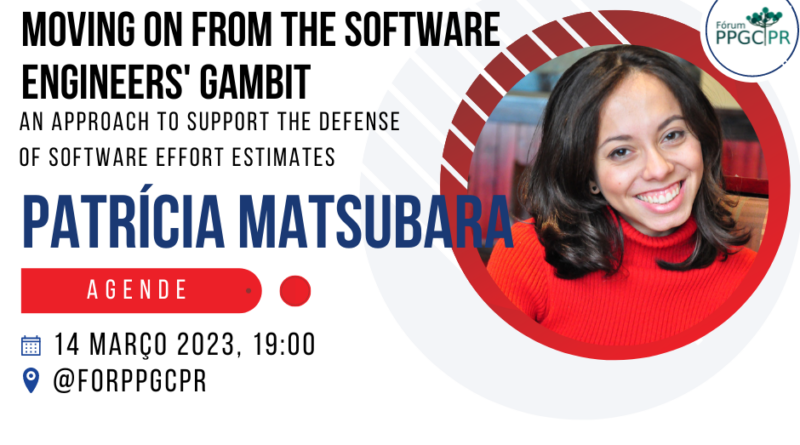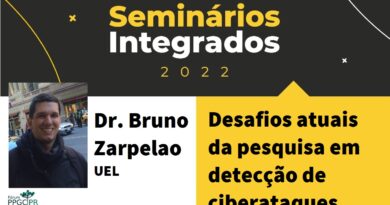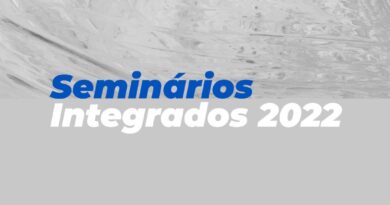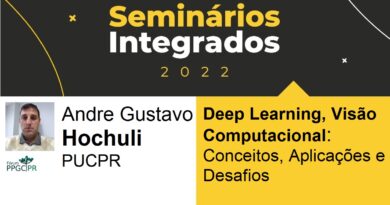Moving on from the software engineers’ gambit: an approach to support the defense of software effort estimates
Data: 14/03/2023, às 19:00
Canal do Fórum: https://www.youtube.com/live/2_Ieu0eZf3g?feature=share
Pressure for higher productivity and faster delivery is increasingly pervading software organizations. This can lead software engineers to act like chess players playing a gambit — making sacrifices of their technically sound estimates, thus submitting their teams to time pressure. In turn, time pressure can have varied detrimental effects, such as poor product quality and emotional distress, decreasing productivity, which leads to more time pressure and delays: a hard-to-stop vicious cycle. This reveals a need for moving on from the more passive strategy of yielding to pressure to a more active one of defending software estimates. Therefore, we propose an approach to support software estimators in acquiring knowledge on how to carry out such defense, by introducing negotiation principles encapsulated in a set of defense lenses, presented through a digital simulation. We evaluated the proposed approach through a controlled experiment with software practitioners from different companies. We collected data on participants’ attitudes, subjective norms, perceived behavioral control, and intentions to perform the defense of their estimates in light of the Theory of Planned Behavior. We employed a frequentist and a bayesian approach to data analysis. Results show improved scores among experimental group participants after engaging with the digital simulation and learning about the lenses. They were also more inclined to choose a defense action when facing pressure scenarios than a control group exposed to questions to reflect on the reasons and outcomes of pressure over estimates. Qualitative evidence reveals that practitioners perceived the set of lenses as useful in their current work environments. Collectively, these results show the effectiveness of the proposed approach and its perceived relevance for the industry, despite the low amount of time required to engage with it.
Bio: Patrícia Gomes Fernandes Matsubara é Professora da Universidade Federal de Mato Grosso do Sul. Possui graduação e mestrado em Ciência da Computação pela Universidade Federal de Goiás (2007 e 2010, respectivamente) e Doutorado em Ciência da Computação pela Universidade Federal do Amazonas (2022). Tem experiência na área de Ciência da Computação, com ênfase em Engenharia de Software. Seus atuais interesses de pesquisa estão focados em fatores humanos em engenharia de software, melhoria de processos de software e ensino de engenharia de software.



